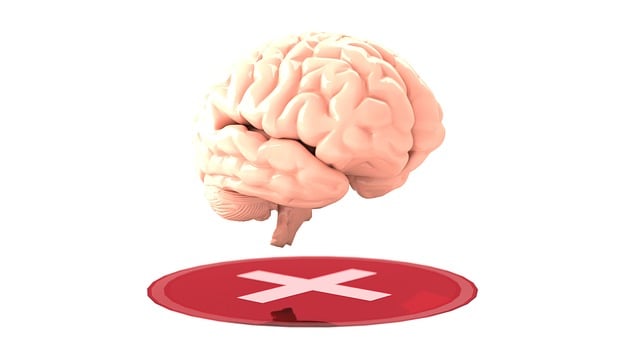Englewood American Sign Language (ASL) therapy presents unique risks that require meticulous professional assessment, focusing on emotional regulation, cultural competency, and client confidentiality. By integrating conflict resolution, compassion cultivation, mindfulness meditation, and social skills training, therapists create secure environments conducive to open dialogue and healthy coping strategies. Strategic practices, guided by ethical frameworks and crisis intervention guidelines, ensure patient safety while implementing evidence-based techniques tailored to diverse client needs. Case studies from Englewood ASL centers offer real-world insights for risk management, enhancing mental health care outcomes across multicultural contexts.
Mental health professionals strive to provide safe, effective care. Risk assessment is a cornerstone of this effort, crucial for identifying potential hazards and implementing strategies to mitigate them. This article delves into the essential practice of risk assessment within mental health care, specifically focusing on unique considerations in Englewood American Sign Language (ASL) therapy settings. We explore ethical guidelines, practical strategies for enhancing patient safety, and gain insights from real-world case studies.
- Understanding Risk Assessment in Mental Health Care
- Identifying Potential Hazards in Englewood ASL Therapy Settings
- Ethical Considerations for Mental Health Professionals
- Strategies to Mitigate Risks and Enhance Patient Safety
- Case Studies: Learning from Real-World Scenarios
Understanding Risk Assessment in Mental Health Care

Risk assessment is a vital component of mental health care, enabling professionals to identify and mitigate potential hazards that could impact patient well-being. For mental health practitioners, such as those at Englewood American Sign Language Therapy, understanding risk assessment involves recognizing various factors that may contribute to adverse outcomes in therapeutic settings. These include, but are not limited to, patient history, current mental state, and the nature of their communication methods, especially when utilizing specialized approaches like American Sign Language (ASL).
By incorporating conflict resolution techniques and compassion cultivation practices, mental health professionals can create a safe and supportive environment. This proactive approach to risk assessment goes beyond simply identifying potential risks; it involves implementing strategies for burnout prevention, fostering open communication, and encouraging healthy coping mechanisms. Through these methods, practitioners can ensure that their patients receive the highest level of care while minimizing the chances of unforeseen challenges arising during therapy sessions.
Identifying Potential Hazards in Englewood ASL Therapy Settings

Englewood American Sign Language (ASL) therapy settings present unique challenges that require meticulous risk assessment for mental health professionals. Identifying potential hazards is a critical step in ensuring safe and effective practice. One primary concern is the emotional regulation of both therapists and clients, given the sensitive nature of the work and the need to establish trust through non-verbal communication. Effective ASL therapy demands a high level of empathy and understanding, which can be demanding for mental health professionals, especially when navigating complex client histories and cultural differences.
Additionally, a thorough risk assessment should consider the broader context of Mental Health Policy Analysis and Advocacy. Policies related to accessibility, confidentiality, and cultural competency are vital in shaping the practice environment. Therapists must be aware of their rights and responsibilities, as well as the potential for systemic risks that could impact client care. By proactively identifying and mitigating these hazards, mental health professionals can create a supportive and secure atmosphere conducive to successful ASL therapy outcomes.
Ethical Considerations for Mental Health Professionals

Mental health professionals face unique challenges when it comes to ethical considerations due to the sensitive nature of their work. At Englewood American Sign Language Therapy, for instance, therapists must navigate complex issues surrounding confidentiality and consent, especially when dealing with deaf or hard-of-hearing clients who may have additional barriers to communication. It’s crucial for these professionals to be well-versed in cultural competency and sign language proficiency to ensure effective therapy.
The ethical framework for mental health practices should include guidelines for crisis intervention and emotional regulation techniques used during sessions. Mental Health Education Programs Design can play a pivotal role in equipping therapists with the skills to handle delicate situations. Additionally, Crisis Intervention Guidance should be readily accessible to support professionals in making swift and informed decisions that prioritize client safety while upholding ethical standards.
Strategies to Mitigate Risks and Enhance Patient Safety

Mental health professionals face unique challenges when it comes to managing risks and ensuring patient safety. To mitigate these risks effectively, several strategies can be implemented. Firstly, incorporating practices like Mindfulness Meditation into daily routines can help professionals manage stress and maintain emotional resilience, thereby improving their ability to support patients. Regular Social Skills Training sessions can also enhance interpersonal interactions, making therapy sessions safer and more productive for both the therapist and the client.
At Englewood American Sign Language Therapy, we understand the importance of comprehensive risk assessment and management. Our therapists are trained in advanced risk assessment techniques, enabling them to identify potential hazards early on. By fostering a culture of open communication, continuous learning, and evidence-based practices, we enhance patient safety and promote positive outcomes. This holistic approach ensures that our professionals are well-equipped to handle various risks, creating a secure environment for all involved.
Case Studies: Learning from Real-World Scenarios

Case studies provide a powerful tool for mental health professionals to learn from real-world scenarios, offering valuable insights into complex situations. By examining specific cases, practitioners can gain a deeper understanding of potential risks and develop effective strategies to mitigate them. For instance, studying the experience of Englewood American Sign Language Therapy (ASL) centers can offer unique perspectives on cultural sensitivities and communication barriers in mental health care. These case studies often reveal challenges related to language access, client confidentiality, and cultural competence, which are essential considerations in a diverse society.
Through such analyses, professionals can enhance their risk assessment skills. They learn to identify subtle indicators of distress or potential hazards within diverse communities, including those with limited English proficiency or unique cultural practices. This knowledge is vital for tailoring interventions and ensuring the highest level of care, especially when addressing issues like mood management in a multicultural context. Moreover, case studies contribute to the broader goal of Mental Health Awareness, encouraging public discussions on these nuanced topics and fostering better understanding and support for all individuals seeking mental health services.
Mental health professionals play a vital role in helping clients navigate complex emotional landscapes, yet they themselves face unique risks. This article has explored these challenges through the lens of Englewood American Sign Language (ASL) therapy settings, highlighting ethical considerations and practical strategies for risk assessment and mitigation. By understanding potential hazards and adopting comprehensive safety measures, therapists can create a secure environment that promotes healing while safeguarding their well-being. Continuous learning from real-world case studies ensures professionals are equipped to handle complex situations effectively.














